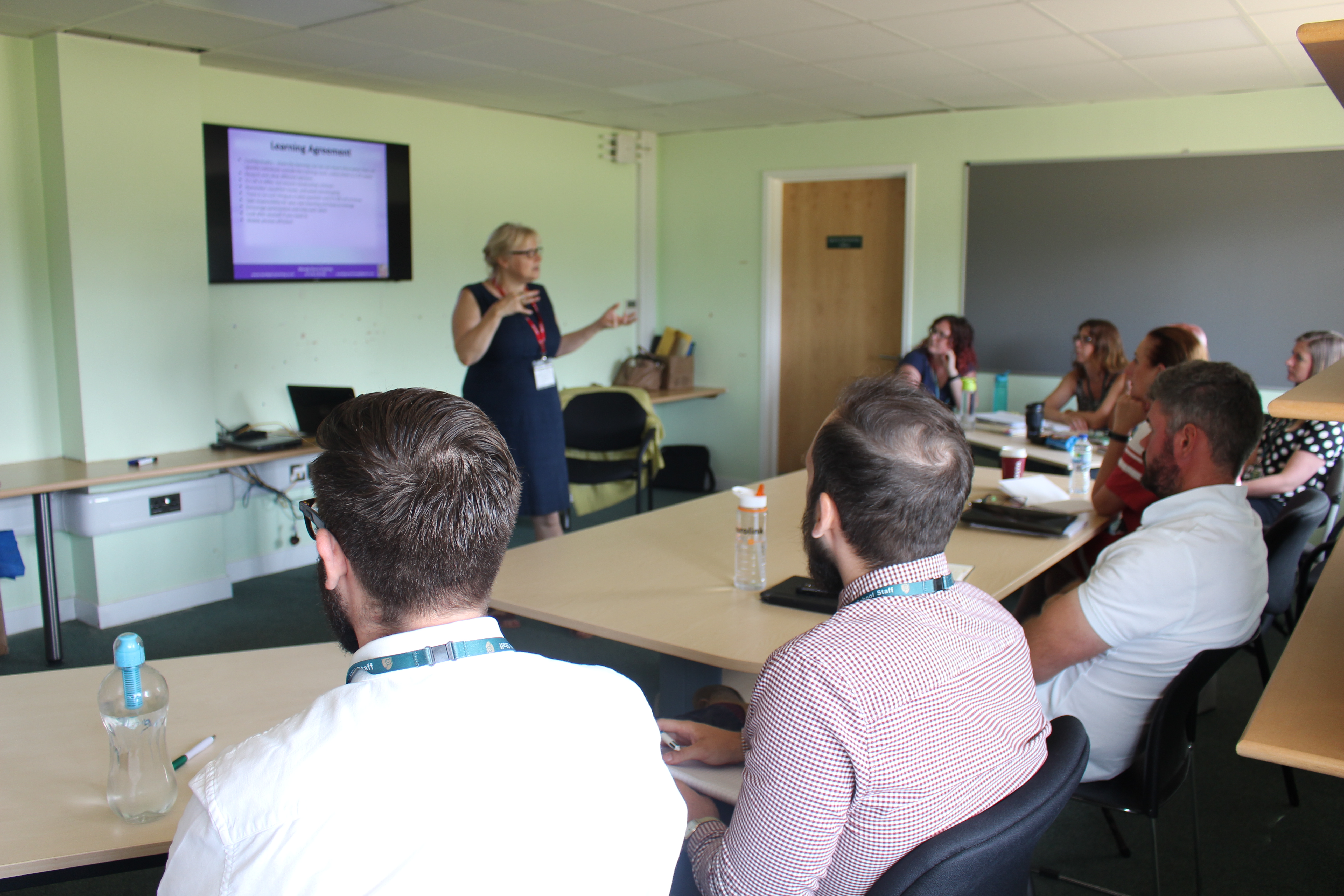 What a start to the new academic year we have had! In the first 10 days, Mandy Parry Training Associates delivered 14 sessions of training, visited ten different settings, trained over six hundred participants – and fielded dozens of requests for places on our new Open Courses or our inhouse training. It’s been challenging, but rewarding because, as always, the feedback from all our training has been very good to excellent.
What a start to the new academic year we have had! In the first 10 days, Mandy Parry Training Associates delivered 14 sessions of training, visited ten different settings, trained over six hundred participants – and fielded dozens of requests for places on our new Open Courses or our inhouse training. It’s been challenging, but rewarding because, as always, the feedback from all our training has been very good to excellent.
Many participants in the training shared with us that they found it very useful to keep up to date with any changes to key safeguarding legislation, guidance and local procedures. I thought that now might be a good time to take stock and share the important laws and documents that everyone needs to be aware of right now. If you are a Designated Safeguarding Lead (DSL) and Deputy DSL you need to make sure that your policies are updated with regard to this guidance – and everybody else still needs to be generally aware of the following information.
What you need to know
- The Children and Social Work Act 2017 placed a duty on the Secretary of State for Education to make the new subjects of Relationships Education at primary and Relationships and Sex Education (RSE) at secondary compulsory through regulations. The Act also provides a power for the Secretary of State to make Personal, Social, Health and Economic Education mandatory in all schools by 2020 at the latest. Statutory Guidance isn’t in place yet, but they are consulting and it will be imminent.
- Working Together to Safeguard Children 2018 (WTSC) – the absolutely key statutory safeguarding guidance that every setting who works with children needs to follow to the letter. It has had a major refresh this year (last one was 2015) and the headlines are that Local Safeguarding Children Boards are to be structured, Early Help is still key, and the definition of ‘Child Centred Safeguarding’ has been updated to include the need to be protected.
- Keeping Children Safe in Education 2018 (KCSIE) – the absolutely key statutory safeguarding guidance that every setting that works with children in an educational setting needs to follow to the letter. It also has had a major refresh (last one was only in 2016) to make sense with the new Working Together above. The headlines include: importance of contextual (360 degree) safeguarding, protecting children against online abuse, child sexual exploitation, peer abuse and bullying, and supporting the needs of children with SEN & disabilities, care leavers, adopted children, and those who are affected by homelessness and domestic abuse. Settings are asked to rely on individual behaviour plans and there should be less use of physical restraint and force. Schools should ensure that pupils are safeguarded in alternative provision and in exchange programmes. Induction training for new staff should include policies on: behaviour, children missing, staff code of conduct, child protection and everyone working directly with children MUST read Section 1 AND Annex A of KCSIE (DSLs should put that out on an email to existing staff). If you have a generic child protection policy in place in your setting for whatever reason, the new KCSIE asks you to make sure that it specific (make sure you state the name of your DSL and their Deputy for instance) so amending this will be more work for the DSL.
- Sexual violence and sexual harassment between children in schools and colleges 2018 – this statutory guidance may have passed you by earlier last May 2018 when it was first published but it is designed to work with KCSIE and the new edition makes reference to it. It’s absolutely essential reading for all DSLs and all staff should be aware of it. Good focus for a staff meeting and will really get discussion going.
- Inspecting Safeguarding Ofsted 2018 – a new update to Inspecting safeguarding in early years, education and skills in line with the changes made to WTSC and KCSE.
Headlines are: not only are staff and volunteers carefully selected and vetted, but ‘ongoing suitability’ should be considered to prevent the opportunities for harm to pupils; inspectors will ‘consider safeguarding policies and practice and evidence’ of staff awareness; previous guidelines referring to children learning ‘how to keep themselves safe’ have been changed to children know how to ‘recognise when they are at risk and how to get help when they need it’, staff awareness of ‘wider environmental factors’ in the child’s life outside of school, support for staff to help them make reasonable judgements about when it may be appropriate to use physical contact with a child to protect them from injury, and the need for school leaders, to understand the arrangements in their local area during the transition from LSCBs to the new local safeguarding partnerships. - Local policies – if you are in Bristol and you aren’t aware of the new Threshold document you need to get moving! The local threshold document is key to understanding how to help and refer children who are in need of support or protection. Everyone working with children needs awareness of their local threshold document.
Upcoming relevant training
We will discuss the detail of these new and updated policies, and the implications for practice, on the next open Advanced Safeguarding course on Thursday 27 September 2018.
It’s an extremely popular course, so please book your space now by contacting Shelley Brown via email: shelley.brown@delegatedservices.org